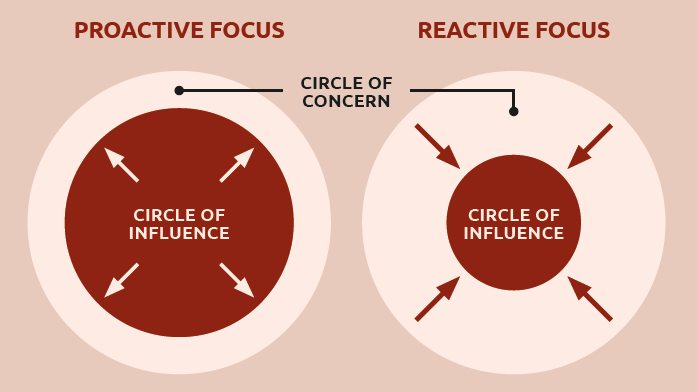In Stephen Covey’s seminal book The 7 Habits of Highly Effective People, habit number one is ‘be proactive’. We should all pay close attention to the language we use. Reactive and negative language can become self-fulfilling. Individuals can become reinforced in a reactive paradigm, which serves only to hinder personal impact and influence.
Try these exercises to see how proactive you are:
Phrases such as “I have to do it that way”, “There’s nothing I can do” or “If only GPs could understand our role better” are examples of reactive language. Proactive choices would be “I can choose a different approach”, “Yes, I can be responsible for this decision” and “I should help GPs to see what we do as important to them”.
Do you think the language you use tends to be reactive or proactive?
Another dimension of proactivity is understanding where you focus your time and energy. Invest your energy in the wrong place and you will find it hard to have a personal impact.

Everyone has a range of concerns, such as career, money, health and family. Covey represents this as the ‘circle of concern’. There are many concerns we have no control over, such as the UK economy or political events, but those we do have control over, such as what to buy, how to behave, who to surround ourselves with, he calls the ‘circle of influence’.
Proactive people focus time and energy on things they can do something about; as they focus their energies, their circle of influence increases. Reactive people focus on their circle of concern, and only see weakness and problems in their environment. This can result in blame and accusatory attitudes and language, which will only widen the circle of concern, diminishing impact and influence.
